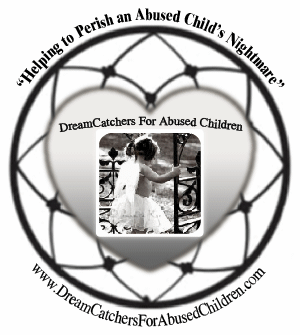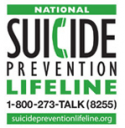WHAT TO DO IF YOU THINK A CHILD IS BEING ABUSED
(SOURCE: http://www.childhelp.org/pages/about-abuse)
What is child abuse?
Although there are many formal and acceptable definitions of child abuse, the following is offered as a guide for information on child abuse and neglect.
Child abuse consists of any act of commission or omission that endangers or impairs a child’s physical or emotional health and development. Child abuse includes any damage done to a child which cannot be reasonably explained and which is often represented by an injury or series of injuries appearing to be non-accidental in nature.
How do I know if I am being abused and what can I do about it?
Child abuse comes in many forms and happens to a lot of people. The 24-Hour Childhelp® National Child Abuse Hotline receives calls from people like you every day. Each call is anonymous. They have trained, professional counselors on staff to talk you through a crisis or to refer you to someone you can talk to in your area. They can also help you connect with the Child Protective Services office in your area.
I am stressed, or feel out of control with my child. I don’t know what to do and I am afraid to ask for help. What should I do?
The 24-Hour Childhelp® National Child Abuse Hotline receives calls from people like you every day. Each call is anonymous. They have trained, professional counselors on staff to talk you through a crisis or to refer you to someone you can talk to in your area.
What do I do if I think someone is abusing a child?
If a child discloses that he or she has been abused by someone, it is important that you listen to them most of all.
DO NOT
• Investigate
• Ask leading questions (a question that suggests the answer or contains the information the questioner is looking for – That man touched you, didn’t he?)
• Make promises
• Notify the parents or the caretaker
DO
• Provide a safe environment (be comforting, welcoming, and a good listener).
• Tell the child it was not his/her fault
• Listen carefully
• Document the child’s exact quotes
• Be supportive, not judgmental
• Know your limits
• Tell the truth and make no promises
• Ask ONLY four questions
• What happened?
• Who did this to you?
• Where were you when this happened?
• When did this happen?
• Asking any additional questions may contaminate a case!
Report it!
• Call your local law enforcement agency
• Call your local Child Protective Services Agency
• Call the 24-Hour Childhelp® National Child Abuse Hotline
Child Protective Services hasn’t done anything — why?
Child Protective Services (CPS) is a program mandated by individual states for the protection of children who are alleged to be abused or neglected. The function of this program is to screen and investigate allegations, perform assessments of the children’s safety and risk of harm, and evaluate the conditions that support or refute the allegations and need for intervention. The program may provide stabilization services for families to reduce risk factors. CPS does not necessarily remove a child in all allegations. Many allegations do not result in intervention. For example, in 2005, an estimated 3.6 million children received a CPS investigation; however only 899,000 were substantiated cases.
For more information, contact your local Child Protective Services or the 24-Hour Childhelp® National Child Abuse Hotline/.
Major forms of child abuse
Physical abuse – Any non-accidental injury to a child. This includes hitting, kicking, slapping, shaking, burning, pinching, hair pulling, biting, choking, throwing, shoving, whipping, and paddling.
Sexual abuse – Any sexual act between an adult and child. This includes fondling, penetration, intercourse, exploitation, pornography, exhibitionism, child prostitution, group sex, oral sex, or forced observation of sexual acts.
Neglect – Failure to provide for a child’s physical needs. This includes lack of supervision, inappropriate housing or shelter, inadequate provision of food, inappropriate clothing for season or weather, abandonment, denial of medical care, and inadequate hygiene.
Emotional abuse – Any attitude or behavior which interferes with a child’s mental health or social development. This includes yelling, screaming, name-calling, shaming, negative comparisons to others, telling them they are “bad, no good, worthless” or “a mistake”. It also includes the failure to provide the affection and support necessary for the development of a child’s emotional, social, physical and intellectual well-being. This includes ignoring, lack of appropriate physical affection (hugs), not saying “I love you”, withdrawal of attention, lack of praise, and lack of positive reinforcement.
---------------------------------------------By the time you finish reading this, 15 children will have been abused; In the next five minutes, 30 more; Within the next hour, 360 more; And by tonight, close to 8,000+ children will have suffered from abuse, 5 of which will die. Child abuse has increased 134% since 1980 and is now considered a worldwide epidemic. The high jump in child abuse deaths and the shocking increase in statistics highlights the frightening lack of public knowledge.
Educate Yourself -- Learn the Facts
It May Just Save a Child's Life!!


















![Validate my RSS feed [Valid RSS]](http://dreamcatchersforabusedchildren.com/wp-content/uploads/2009/10/valid-rss.png)












